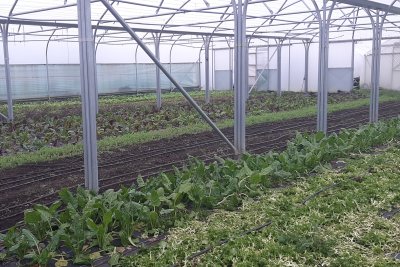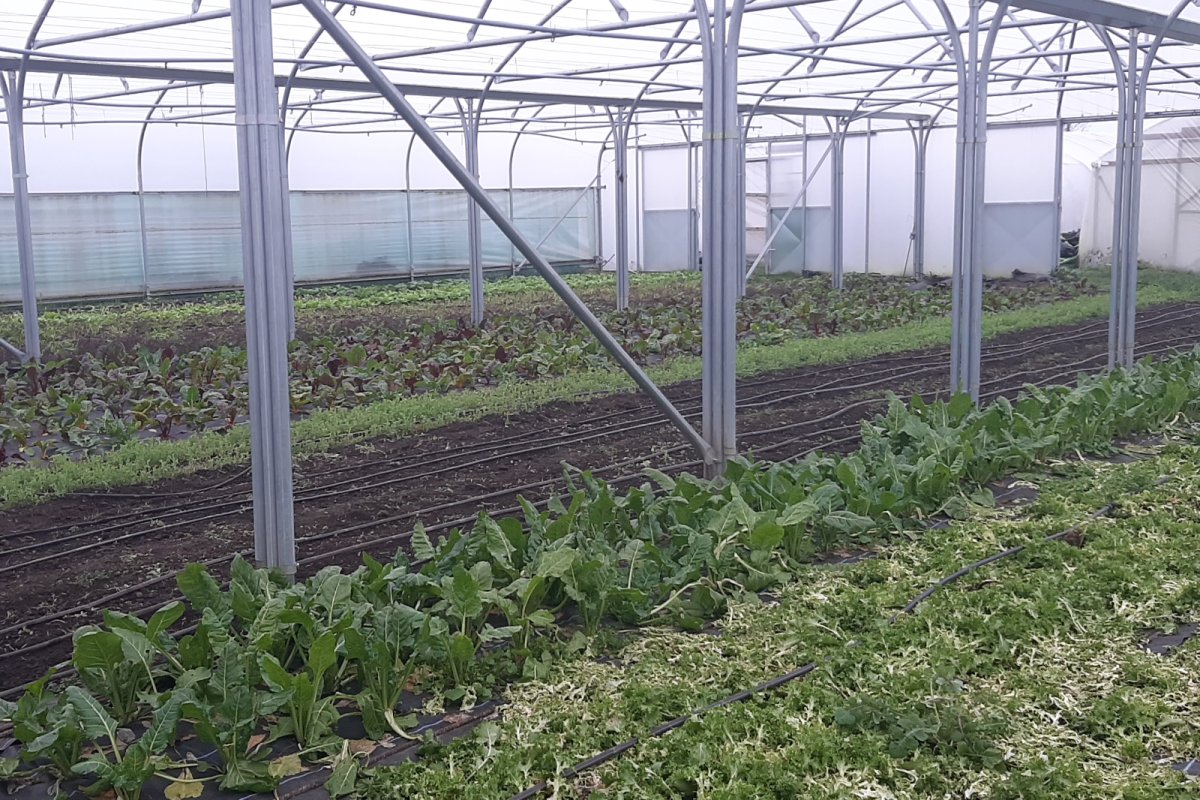 Sutton Community Farm, in South London. Credit: Sofia Parente
Sutton Community Farm, in South London. Credit: Sofia Parente
Reforms to national planning policy are underway: what’s at stake for food and farming?
A revised National Planning Policy Framework for England is expected later this Spring and longer-term changes await legislation that will come out of the Levelling Up and Regeneration Bill currently going through parliament. Read more about what’s at stake and key points from our response to the government’s consultation on reforms to planning policies.
Whilst the agenda for the government’s recent consultation on reforms to planning policies was predetermined by a set of specific questions, we managed to cover planning issues on food growing at all scales, climate, and building a healthy food environment.
The spatial planning process can support sustainable local food systems, for example through provision of land for growing or restriction of unhealthy hot food takeaways. Sustain wants the planning reforms taking place to recognise that a good food system delivering a good food environment contributes to the achievement of sustainable development. After all, sustainable food systems deliver multiple public benefits from clean water to green spaces.
National planning policies
Sustain, supported by partners and members of the Sustainable Food Places Network, is calling for national development management policies. We originally submitted a briefing to DLUHC in December 2022 and have now formally submitted it as part of our consultation response.
National planning policies can help achieve an environmentally friendly, healthy, equitable and secure food and farming system. At the moment, councils must provide an extensive body of evidence to support action on food systems in planning. A well-known example is the attempt by many councils to restrict the proliferation of hot food takeaways while large scale private companies have the financial and human resources to challenge local authorities’ planning decisions every step along the way. One solution is to have more detailed national planning policies, founded on well researched core principles. This will free up local councils to prepare locally applicable detailed policies which will give clear guidance on what good development and land use will look like in their own place.
Farming is integral to ‘beauty’
One question in the consultation was on the role of beauty and placemaking in strategic policies and how to encourage well-designed and beautiful development. We pointed out that ‘beauty’ should include the natural environment, wildlife and nature, and thus any planning application that threatens them should be considered a threat to beauty.
Farming covers 70 per cent of the UK, and sustainable farming and the food system are therefore integral to beauty and placemaking, and must be part of well-designed and beautiful developments. More diverse and nature-friendly farming systems improve the beauty and biodiversity of an area.
Furthermore, market gardens, small and medium (SME) farms and food businesses do a lot of public engagement. This includes opportunities for local communities to volunteer, learn, and take part in food growing, cooking and land management.
We support greater certainty over the permanence of the Green Belt as this will encourage landowners to manage land for the long term. Currently, it is difficult for new entrants to farming to raise funding for short term leases and land falls into disuse.
We made several suggestions for how national policy for small scale nature interventions could be strengthened. For a start, national policy can guide planners to encourage and support small scale interventions that have dual benefits of producing food and demonstrable benefits for nature, including:
- Sustainable farming enterprises that are using agro-ecological methods.
- New market gardens, especially on the urban fringes where they offer improved access to nature, community benefits and healthy, sustainable food.
- Community food growing spaces and allotments, which can create more access to green space and nature.
- Support for edible planting in landscape schemes.
Government has reassured MPs that the Levelling Up and Regeneration Bill and the planning reforms will protect farmland used for food growing. We find this curious as there is no planning control over the type of crops grown.
The proposed approach does not address how the planning system will protect food production in England. At the minimum, we seek clarification that, any land that is 'capable' of producing food (crops and livestock) should be considered as sustainable agricultural use in the planning process.
Planning authorities should encourage applications that demonstrate they are based on sustainable farming. For example, more underutilised land on the urban fringes (i.e. peri-urban) could be used for delivering food, prosperity, nature, climate, and health benefits for local communities. That should equate to supporting the development of more peri-urban farms supplying healthy food close to market.
High value farmland, including ‘best and most versatile agricultural land’ should be valued in the planning system when applications are made to change its use. It would be detrimental to the environment and food security to lose land that could be used for sustainable farming in favour of unsustainable farming.
We suggest that Department of Levelling Up, Housing and Communities and Defra review how planning can support a peri-urban farming system that can provide employment, community engagement, carbon reduction, biodiversity as part of a sustainable food system.
Carbon assessment in the planning system
We welcome the possibility of carbon impact assessment in the planning system. Carbon impact assessments should be required for all developments.
At the moment, environmental impact assessments are required for some developments, but they don’t include sufficient, or detailed enough greenhouse gas (GHG) emissions information to allow planning authorities to assess the risk to local and national climate obligations. However, the carbon impact assessment should include all GHGs, not just carbon. In intensive animal production operations, feed can constitute 60-70 per cent of the GHG footprint of the meat produced. Not requiring developers to set out the full scope of their emissions risks genuinely more sustainable developments from being considered favourably.
Planning authorities will need to have a full picture of the emissions caused by a development to allow them to make informed decisions. National planning policy should give clear guidance to planning authorities that developments that have high GHG emissions, and therefore pose a threat to the delivery of the UK’s statutory Net Zero targets, should be rejected. Where developments with higher emissions are approved, planners should require annual monitoring and reporting through a planning condition.
How can the planning framework support economic growth and productivity?
The farming and the food system is well placed to deliver on resilient economic growth and productivity in local communities. Food and farming employ people in all parts of the country and in all communities. Supporting sustainable farm businesses and SME local food enterprises would increase decent jobs across all communities.
Furthermore, moving food production closer to markets not only reduces food miles but also better connects farmers and consumers. Among other benefits, this encourages a greater proportion of the retail sale going back to the farmer and staying within the local economy.
Next steps
A revised National Planning Policy Framework is expected later in the Spring while longer term changes await legislation that will come out of the Levelling Up and Regeneration Bill currently going through parliament. We hope our response will raise awareness of the planning issues of a sustainable food and farming system within the Department of Levelling Up, Housing and Communities and that they will work closely with Defra on cross-departmental policy such as the implementation of the Environment Act and increasing food security.
Planning Food Cities: Find out how to get involved shaping the future of your local area to create a more sustainable and local food system.
Sustain
The Green House
244-254 Cambridge Heath Road
London E2 9DA
020 3559 6777
sustain@sustainweb.org
Sustain advocates food and agriculture policies and practices that enhance the health and welfare of people and animals, improve the working and living environment, promote equity and enrich society and culture.
© Sustain 2024
Registered charity (no. 1018643)
Data privacy & cookies








